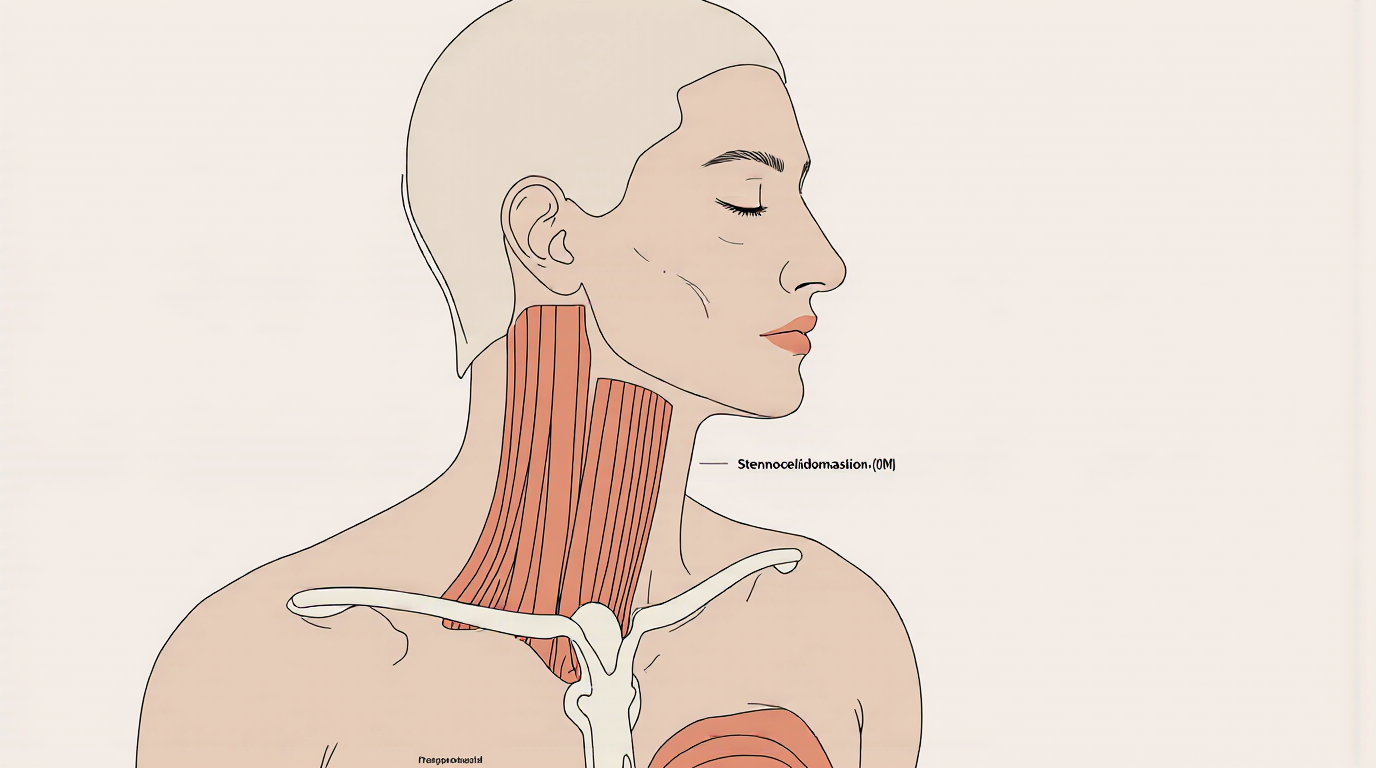It’s not hormones. Not nerves.
And not even exhaustion.
👉 It’s a spasm of one muscle that 90% of people don’t even know exists.
🔬 Its name is the sternocleidomastoid muscle (SCM).
And it can literally switch off your brain, block blood flow, disrupt breathing and trigger anxiety.
📍 What is this muscle?
🔹 It runs from the sternum and collarbone to the base of the skull
🔹 Controls head rotation and tilting
🔹 Activates with every breath, eye movement, stress or fear
🔹 Connects with the ears, eyes, jaw, nerves, lymphatic system and psyche
🔹 Supports stabilisation of the neck position
🔹 Engages during swallowing, focusing vision and stress
⚠️ If it’s in spasm, you may experience:
– Constant dizziness
– Shortness of breath
– Headache near the ear or at the back of the head
– Ringing in the ears, mental fog
– Unsteady gait, as if after a carousel ride
– Lump in the throat or difficulty swallowing
– Facial asymmetry (one side feels tight)
– Panic attacks, even though the heart and lungs are fine
– Facial swelling
– Bags under the eyes
– Tired-looking face
– Morning head heaviness
🧠 Why does this happen?
🔬 The SCM interacts with:
• The brain’s main vein (internal jugular)
• The carotid sinus, which regulates blood pressure
• Facial and brain lymphatic collectors
• Sympathetic nodes controlling stress
• Links with the vagus nerve, which regulates breathing
🤯 A small muscle – big consequences:
✨ Tension here can cloud your consciousness
✨ It may cause light sensitivity, ear pressure and anxiety
✨ The SCM often stores childhood physical reactions to fear
✨ Massage of this muscle can sometimes relieve symptoms that have resisted medication
🧬 Interesting facts:
• The SCM is often tight in people with dental bite issues or braces
• 70% of patients with “vegetative-vascular dystonia” show SCM hypertonicity
• This is often the first muscle to activate during emotional or physical trauma (even in childhood)
✨ Sometimes this muscle causes migraines – though we try to treat the head.
